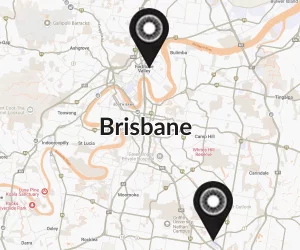
Laser Eye Surgery vs LASIK: What’s the Difference?
When considering vision correction, you’ve probably come across two terms: Laser eye surgery and LASIK. But what’s the difference between them? Are they the same, or do they refer to different procedures? If you’re confused, you’re not alone. In this blog post, we’ll clarify what laser eye surgery and LASIK are, how they differ, and which one might be the best option for you.
What is Laser Eye Surgery?
Laser eye surgery is a broad term used to describe several types of surgeries that correct vision using laser technology. These surgeries are designed to correct refractive errors, such as:
- Myopia (nearsightedness)
- Hyperopia (farsightedness)
- Astigmatism (blurred vision due to an irregularly shaped cornea)
Laser Eye Surgery uses a laser to reshape the cornea (the clear front part of the eye) to ensure light is properly focused onto the retina at the back of the eye. There are several different types of laser eye surgery, and LASIK is one of the most popular.
What is LASIK?
LASIK (Laser-Assisted In Situ Keratomileusis) is a specific type of laser eye surgery. It’s known for its precision, quick recovery, and high success rates.1Probst, The Optimization of LASIK, International Ophthalmology Clinics 48(1):p 9-16, Winter 2008. LASIK involves creating a thin flap in the cornea, reshaping the underlying tissue with a laser, and then repositioning the flap.
How LASIK Works:
- Creating the Flap: A thin flap is created on the surface of the cornea using a femtosecond laser or a microkeratome blade.
- Reshaping the Cornea: The excimer laser is used to reshape the corneal tissue, correcting the vision problem.
- Flap Repositioning: The flap is then repositioned and adheres naturally without the need for stitches.
The procedure is quick, taking about 15 minutes per eye, and recovery is typically fast, with most people noticing improved vision within 24 hours.2Durrie, D.S. (2012) Evaluating the speed of visual recovery following thin-flap LASIK
Laser Eye Surgery: More Than Just LASIK
While LASIK is a type of laser eye surgery, it’s not the only option. Other procedures under the umbrella of laser eye surgery might be better suited to your specific needs. Here’s a look at some other common types:
PRK (Photorefractive Keratectomy)
PRK was the first type of laser eye surgery developed and is still commonly used today. Unlike LASIK, PRK doesn’t require the creation of a corneal flap. Instead, the outer layer of the cornea (the epithelium) is removed before the laser reshapes the underlying tissue.
Best for: People with thin corneas or those who engage in contact sports, as there’s no risk of flap dislodgement.
Recovery: Takes a bit longer than LASIK, with initial discomfort and blurred vision lasting a few days.
Smartsight
Smartsight is a more recent development in laser eye surgery that uses a femtosecond laser to create a small disc-shaped piece of corneal tissue, which is then removed through a small incision. The cornea is reshaped without creating a flap.
Best for: Those with moderate to severe myopia.
Recovery: Recovery is typically quick, similar to LASIK, but with fewer side effects such as dry eyes.
LASIK vs Other Laser eye surgeries
Now that you know LASIK is just one form of Laser eye surgery, how do you choose between LASIK and other options like PRK or Smartsight? Here’s a quick comparison of LASIK vs other types of Laser Eye Surgery:
1. Flap vs No Flap
LASIK: Involves creating a flap in the cornea, which speeds up recovery but comes with a small risk of flap-related complications.
PRK/Smartsight: No flap is created, reducing the risk of complications, but recovery might take longer (especially with PRK).
2. Recovery Time
LASIK: Quick recovery, with most patients noticing improved vision within 24 hours and returning to work within 1-2 days.
PRK: Slower recovery, with some discomfort and blurred vision for a few days. Full vision may take a week or more to stabilise.
Smartsight: Similar to LASIK, with a fast recovery and minimal discomfort.3Probst, The Optimization of LASIK, International Ophthalmology Clinics 48(1):p 9-16, Winter 2008. https://journals.lww.com/internat-ophthalmology/citation/2008/04810/the_optimization_of_lasik.5.aspx
3. Suitability
LASIK: Suitable for most people with mild to moderate myopia, hyperopia, or astigmatism. However, people with very thin corneas may not be good candidates.
PRK: Ideal for those with thinner corneas or those involved in high-impact sports.4Saragoussi JJ, Djadi-Prat J, Lebuisson DA, et al. Quality of life after LASIK: part II. Quality of life and satisfaction of a population of patients treated with LASIK [in French]. J Fr Ophtalmol. 2011;34:294–302
Smartsight: Great for people with higher degrees of myopia and those wanting a less invasive procedure than LASIK.
The Benefits of laser eye surgery (Including LASIK)
Whichever type of laser eye surgery you choose, the benefits are significant:
1. Permanent Vision Correction
Laser eye surgery offers a permanent solution to refractive errors, meaning you no longer need to rely on glasses or contact lenses to see clearly. For many, this freedom is life-changing.
2. Quick Results
Most laser eye surgery procedures offer quick results, with improved vision noticeable within 24-48 hours.5Saragoussi JJ, Djadi-Prat J, Lebuisson DA, et al. Quality of life after LASIK: part II. Quality of life and satisfaction of a population of patients treated with LASIK [in French]. J Fr Ophtalmol. 2011;34:294–302 Even for procedures with slightly longer recovery times, like PRK, the improvement is significant and long-lasting.
3. Minimal Downtime
With LASIK and Smartsight, most patients can return to their normal activities within a few days. Whether it’s work, exercise, or travel, laser eye surgery offers a quick recovery and minimal disruption to your life.6Ekktet Chansue et al, Efficacy, predictability and safety of small incision lenticule extraction (SMILE),2, Article number 14, Published: 31 August 2015 https://link.springer.com/article/10.1186/s40662-015-0024-4
Is LASIK Right for You?
LASIK remains the most popular type of laser eye surgery due to its quick recovery and proven results. However, it’s not suitable for everyone. If you have thin corneas, dry eyes, or engage in high-impact sports, another type of laser eye surgery, like PRK or Smartsight, might be a better option.7Ekktet Chansue et al, Efficacy, predictability and safety of small incision lenticule extraction (SMILE),2, Article number 14, Published: 31 August 2015 https://link.springer.com/article/10.1186/s40662-015-0024-4
In summary, LASIK is one of several types of laser eye surgery available to correct your vision. While it’s a highly effective and popular option, other procedures like PRK and Smartsight may be better suited to your eyes or lifestyle.8Ekktet Chansue et al, Efficacy, predictability and safety of small incision lenticule extraction (SMILE),2, Article number 14, Published: 31 August 2015 https://link.springer.com/article/10.1186/s40662-015-0024-4 The best way to decide is to consult with a specialist who can guide you through the options. Book a free assessment today and take the first step towards clear, hassle-free vision.
ARE YOU SUITABLE?
Check your laser eye surgery suitability online with our free LASIK self-test
OUR MOST POPULAR PROCEDURES

Hi, I’m Dr. Matthew Russell, a laser and cataract surgeon
HI I’M DR. MATTHEW RUSSELL A LASER EYE AND CATARACT SURGEON
With over 15 years of experience, I enjoy the privilege of helping patients of all ages reclaim clear vision or preserve it for as long as possible.
Vision correction and high-precision cataract surgery hinge on the expertise and skill set of the provider who also has access to the most precise tools for the job. Ophthalmic surgeons like me know how to make treatment safe, comfortable and positive for the patient. They know how to minimise the risk of complications and maximise successful outcomes.
I have a passion for helping my patients enjoy the clear, high-definition vision they need to live rich and active lives. Now, I have hand-picked a team of professionals that share my passion and commitment to exceptional care.
Dr. Matthew Russell
MBChB, FRANZCO





